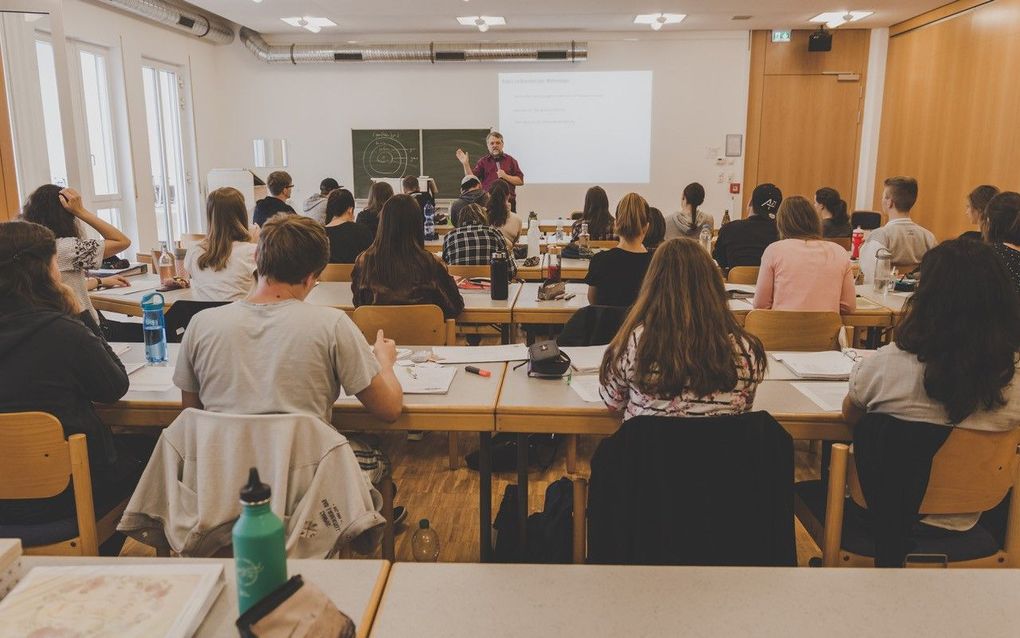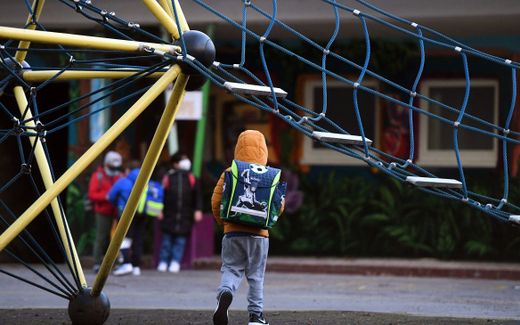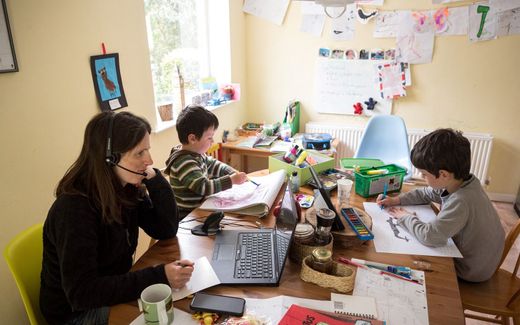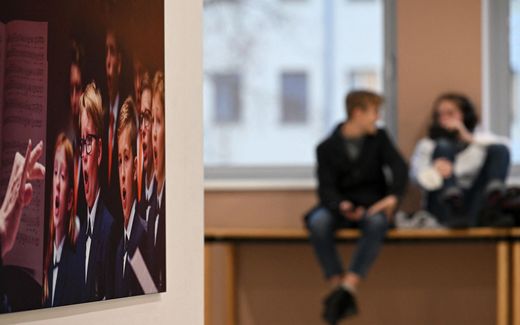Christian university in Germany starts to educate school teachers

Students at IHL. Photo IHL
Central Europe
Christian education is growing in Germany, but teachers are scarce. Therefore, the Internationale Hochschule Liebenzell (IHL) is working on a programme for teachers. It is supposed to start in 2026. “We need teachers who are steadfast in their faith and who live out of their faith.”
Stay up to date with Christian news in Europe? Sign up for CNE's newsletter.
Christian students who want to become a teacher currently attend state universities. However, Christian schools need teachers that fit the school’s identity, says rector Volker Gäckle in an interview with CNE.news.

The shortage of teachers in Germany offered the Christian IHL an excellent opportunity to act on this need. According to Gäckle, studies show that there will be a shortage of between 50,000 and 180,000 teachers until 2035. Christian schools in his state of Baden-Württemberg expect to have a shortage of two teachers every year.
To get more teachers, the state of Baden-Württemberg opened up the possibility for private universities to start a bachelor study for teachers. Students who follow this programme are allowed to teach at private schools in the state, although Gäckle hopes that their teaching license will also become valid in other parts of the country.
Experience
The curriculum of the new study is quite similar to that of teaching degrees at other universities. It takes three years to complete the whole study. Some courses take a semester and others a full year. In addition, students have to do a practicum at a school to gain experience in the field.
What is special about the new programme is that it combines a study of German with the field of theology, Gäckle explains. “That means that our students will be able to teach German, but also get rooted deeper in their faith during their study”, he says. “By following theology courses, they will be better equipped to answer questions their pupils may have about the faith. Christian teachers must be able to take responsibility for their faith. That is why we offer spiritual programmes in addition to the regular curriculum. Secular universities do not have that.”
The rector is not afraid that teachers who graduate from IHL will be otherworldly because they studied in a Christian bubble. “Our students have the freedom to arrange their internship, for example, in a non-Christian environment”, he says. But even if they don't, Gäckle does not see it as a problem. “It makes more sense to do an internship in a Christian school if that is where you want to find a job after your study. So even if there would be a Christian bubble at our university, this would not be a problem. Most teachers in education who study at our school need to be equipped for working in a Christian environment.”
Cooperation
The IHL works together with the Verband Evangelischer Bekenntnisschulen (VEBS). One of the main purposes of the new study is to educate teachers for the growing number of Evangelical schools throughout the country. Currently, there are 176 Evangelical schools and 47 kindergartens connected to the VEBS. Graduates from the new programme can teach pupils at primary schools (age 6-10) and the first grades of secondary school (age 11-16).
However, graduates from the new programme will also be able to teach German as a second language to refugees or work at institutes that promote German as a foreign language in other countries.
Classrooms
The curriculum is clear, the application for accreditation will be sent out in November, and enthusiasm about the potential new bachelor study for teachers abounds. Yet, the IHL must wait a bit longer before it can carry out its plans, says the rector. “Before we can start, we need to find 1 million euros of donations. We need two new classrooms in our university buildings and also money for the salaries of the professors teaching the courses”, he explains.
The tuition fees are not enough to pay the salaries of the staff for the first three years. Students pay about 5,000 euros a year. But the first years, the number of students will most likely not be large enough to cover all the costs. The study offers space for about 20 students, but IHL would be happy if there were 10 people interested in the first year. As the number of students will need to grow over the years, the first years are the most expensive, Gäckle adds. “That is why we need to have a savings fund.” He hopes that the new programme can start in September 2026.
Even though the road to the new programme is not fully paved yet, Gäckle has his hopes up. “Never before has there been so much interest in Christian education. Problems in public schools continue to grow. They struggle with drugs, violence and the level of their education. These problems are less in Christian schools. And as private schools, we can offer people an alternative.”
About IHL
The Internationale Hochschule Liebenzell is a Christian university for applied sciences in Germany. It is located in the town of Bad Liebenzell, close to Stuttgart. Currently, 340 students are enrolled in programmes at the university. They all live in Bad Liebenzell, rector Volker Gäckle says. The university does not offer online programmes.
Related Articles









